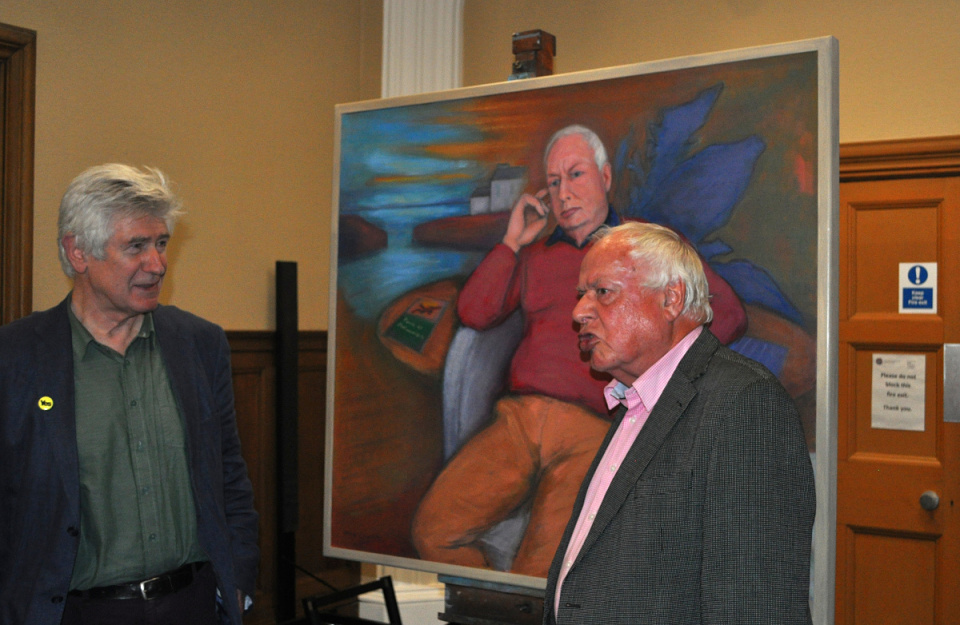Bad Economics and journalistic accountability
Journalism is such an important bridge between experts, governments and citizens that it used to be called “the Fourth Estate” in recognition of its quasi-constitutional significance. The conduct of democracy required citizens to feel confident that what they read in newspapers had some resemblance to “the facts” – but postmodernity has eaten away at such faith. And more and more of us accept that journalism has become part of what Guy Debord called a gigantic industry of “spectacle”
But where does that leave accountability – and ethical responsibility?
I can hear my readers laugh at such naivety
But it is a serious question which I’ve tried to deal with in previous posts listed here
The question arose again this past week in the UK – with the publication of a report on how the BBC has dealt with economics issues in the past few decades. The BBC’s news summary of the report is here. And the full report, which was written by Michael Blastland and Sir Andrew Dilnot, is here. The Guardian eventually had an economist make a typical comment which failed to offer any solutions to the issue of journalistic economic ignorance which had been exposed
So let me repair this deficiency on the part of journalism and offer my list of books which could help the citizen and general reader understand the basics of economics.
And, as a bonus, a master class in how television interviewing should be done
Best written books about Economics for the general reader (chronological order)
Title, author and date |
Comment |
Almost Everyone’s Guide to Economics;JK Galbraith and N Salinger (1978) |
One of the world’s best non-fiction writers and economists is quizzed by a Frenchwoman. Superb |
Short Circuit – strengthening local economies in an unstable world” - Ronald Douthwaite (1996) |
Very practical insight into local economic development by an Irishman – but also inspirational….24 years on, it hasn’t really been bettered. |
Debunking Economics – the naked emperor dethroned; Steve Keen (2001 and 2011) |
Written before the crash, it might be called the first alternative textbook (except it’s much greater fun to read!). By an Australian |
Economics for Everyone – a short guide to the economics of capitalism”; Jim Stanford (2008) |
a very user-friendly book commissioned by Canadian trade unions with excellent graphics and “further reading” list ….for full version see table 2 ….. |
Zombie Economics - how dead ideas still walk among us; by John Quiggin (2010) |
is a great read – with a self-explanatory title. He is also an Australian |
23 Things they didn’t tell you about capitalism; Ha Joon-Chang (2010) |
superbly-written demolition job on the myths perpetrated on us by economists. By a Cambridge economist educated in South Korea |
The Delusions of Economics - the Misguided Certainties of a Hazardous Science; Gilbert Rist (2010) |
Be Warned – this is not a guide but rather a short critique which ridicules economics. More for light relief! |
"The End of Progress - how modern economics has failed us"; Graham Maxton (2011) |
a highly readable book by an ex-Director-General of the Club of Rome |
Austerity – the history of a dangerous ides; Mark Blyth (2013)
|
written by a Scottish political scientist/political economist (now working at Brown Uni in US) , it shows how old theories still affect the contemporary world profoundly |
Economics of the 1% - how mainstream economics serves the rich, obscures reality and distorts policy; John F Weeks (2014) |
One of the best introductions to the subject - which can't be faulted for being over-diplomatic! By a US economist who worked in London from the 2000s |
Credo – economic beliefs in a world of crisis; Brian Davey (2015)
|
An alternative approach to economics which situates it in its cultural and historical context. It may be long (at 500 pages) but is definitely worth persevering with.... |
Economics Rules – the rights and wrongs of the dismal science; Dani Rodrik (2016) |
Rodrik is from Turkey and is one of the few economists prepared to challenge the mainstream. This is a balanced rather than critical analysis |
The Econocracy – the perils of leaving economics to the experts; Earle, Moran and Ward-Perkins (2017)
|
This is a highly readable little book from those who took part in the protests about the irrelevance of economic teaching and set out the deficiencies they experienced. This is one of the few which is not freely downloadable |
Vampire Capitalism – fractured societies and alternative futures; Paul Kennedy (2017)
|
A sociologist’s treatment which earns high points by stating in the very first sentence that it has “stood on the shoulders of so many giants that he is dizzy” and then proves the point by having an extensive bibliography with lots of hyperlinks… |
Doughnut ;economics – 7 ways to think like a 21st century economist Kate Raworth (2017). google excerpts only |
This Oxford economist’s book is advertised as a new perspective on the subject. These last four are not fully downloadable |
Economics for the common good; Jean Tirole (2017) A French Nobel-prize winning economist |
|
Economics in Two Lessons; John Quiggin (2019) |
Quiggin wrote this book on his website, seeking feedback as he went |
What’s wrong with economics – a primer for the perplexed; Robert Skidelsky (2020) |
Skidelsky is a stylish writer – historian and biographer of Keynes – I’ve long admired. I’ve not had a chance to read the book yet – although Diana Coyle’s not impressed |
